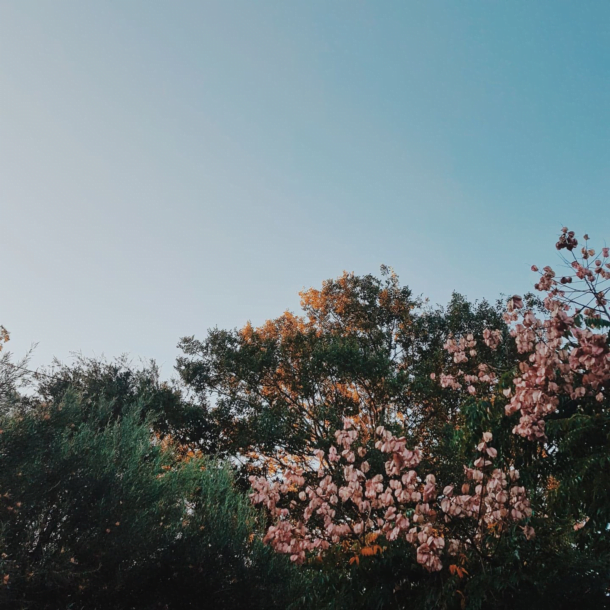What strategies are you using to lift your spirits and maintain mental wellbeing? Nicole Mesquita-Mendes reflects on her commitment to daily meditation in lockdown.

Breathe in. Breathe out. Breathe in and out.
Breathing is something so intrinsic to the human experience that we often forget about it. Often, we go about our days rushing from one task to another. Breathing. Stressing about deadlines, thinking about our next task or our plans for dinner. But how often do you take the time to check in with yourself? To simply be. To breathe.
Like many people throughout COVID-19, I was presented with an abundance of time that I had previously lacked. I decided to use a bit of this time to meditate every day. The word ‘meditation’ often has a bit of a stigma in the modern age. Contemplating the word, I initially imagined an old man, with a long white beard sitting under a fig tree. While that is one way of meditating, there are many more. You can sit under a tree, on your bed or at your kitchen table. There is no ‘right’ way to do it.
During my time at university, I would often turn to meditation at the end of a semester, when stress levels were high, and sleep was almost non-existent. While this form of meditation calmed and re-centred me, it was a band-aid on a much larger problem.
When everything was ‘normal’, I often felt like I did not have time to meditate. I had more important things to do. However, having made my daily meditation a priority over the past few months, I now understand the importance of consistently taking this time out of my day.
We spend a lot of our time thinking, often jumping between various thoughts, tasks and open ‘tabs’ in our mind. Constantly at work and rarely getting the break our mind craves. Meditation provides an opportunity for us to simply be – to empty our mind and gain some perspective. Of course, we all know it is not that simple – when someone says, “don’t think of an elephant”, naturally, the elephant appears. Meditation comes down to acceptance, accepting that you have a thought and letting it go in that moment.
Andy Puddicombe, co-founder of the meditation app Headspace, uses the metaphor of cars on a street. You would simply watch the cars come and go, rather than jump onto the street in a fatal effort to try to stop them. Meditation has a similar approach. By letting your thoughts come and go without interference, it creates distance between the two. Meditation is recognising that there is a difference between you, your thoughts, and your emotions. This technique has allowed me to step back and gain perspective, to be present and to respond to situations clearly and calmly.
I was pleasantly surprised when I was able to take this perspective into my everyday life and live more mindfully. By paying attention to my thoughts and the present moment in a non-judgmental way, I have a greater appreciation for the people and world around me. I have gained a greater awareness of my mind. This has allowed me to understand myself, what I value, what is worth my time and who I want to be. Rather than just re-centre in the moment, I have been able to re-centre my lifestyle. I am grateful that I took this time to meditate. It has provided me with clarity with which I can approach life.
Meditation is a skill, and like any skill, it takes practice. There are plenty of resources available to help you out. Some resources I have found useful are Headspace and Smiling Mind. There are plenty of apps and programs out there, so find one that works for you. Take some time out of your day to take care of yourself; to be kind to yourself. Take some time out to simply be.
Breathe in. Breathe out. Breathe in and out. You are one step closer.
Nicole Mesquita-Mendes is the 2020 SONA Vice-President for Membership and Engagement. She graduated from a Bachelor of Architectural Studies at Bond University at the end of 2019 and is currently working at Hayball. She is curious about how architecture can impact and improve the human experience.




















